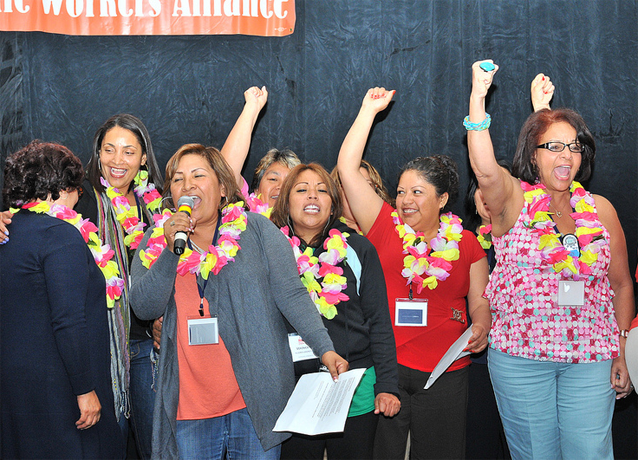Today, the Department of Labor announced new regulations to extend basic labor protections to millions of in-home care workers, entitling care workers to minimum wage and overtime protections and ending 75 years of unfair exclusion from the Fair Labor Standards Act.
This is an important step toward stabilizing one of America’s fastest-growing workforces, and one made up predominantly of women, women of color, and immigrants. It’s a long overdue show of respect for women in the workplace and for the important work of supporting seniors and people with disabilities.
Every eight seconds, someone in America turns 65. By 2020, five million care workers will be needed to meet the growing demand for care—meaning the care workforce is going to have to basically double within the next seven years.
“These new rules are a major victory for the 2.5 million home care workers in America, and the millions more who will be needed to meet America’s growing need over the next decades,” said Sarita Gupta, executive director of Jobs with Justice and American Rights at Work, and co-director of the Caring Across Generations campaign. “By extending basic labor protections to in-home care workers, the Department of Labor has helped pave the way for strong, sustainable growth of the care workforce.”
As longtime advocates for the need for all workers to be covered by our nation’s labor laws, Jobs with Justice and American Rights at Work have educated the media and public about the need for these regulations, submitted formal comments in support and helped collect hundreds of supportive comments from allies during the comment period. Through our work on the Caring Across Generations campaign we have additionally educated policymakers, met with the U.S. Department of Labor to share input, and brought workers and consumer allies to Capitol Hill to share stories with decision makers.
Over the course of the implementation period, Jobs with Justice/American Rights at Work, National Domestic Workers Alliance and Caring Across Generations are dedicated to working with care providers, care recipients, law makers, and other advocacy organizations to ensure that the new rules are implemented effectively, efficiently, and fairly.





